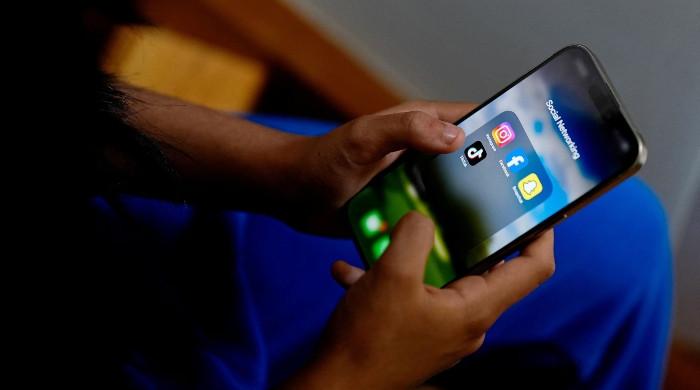
EU Chief Ursula von der Leyen Advocates for Child Safety on Social Media
In an era dominated by technology and social media, concerns about the impact of these platforms on children have intensified. Recently, European Commission President Ursula von der Leyen publicly backed growing calls to restrict social media use among children, highlighting the urgent need for protective measures in the digital landscape. This article explores the implications of this stance, the potential ban on children's access to social media, and answers frequently asked questions regarding the topic.
The Growing Concern Over Children's Social Media Use
As social media continues to evolve and expand its reach, parents, educators, and policymakers are increasingly worried about the effects it has on children's mental health and well-being. Issues such as cyberbullying, exposure to inappropriate content, and addiction to screen time are at the forefront of these concerns. The European Union (EU) has recognized the urgency of these issues and is taking steps to address them.
Ursula von der Leyen's Support for a Ban
On a recent occasion, Ursula von der Leyen expressed her support for initiatives aimed at keeping children off social media platforms. She stated that "our children deserve to grow up in a safe digital environment," emphasizing the need for the EU to take action to protect its youngest citizens. This statement aligns with the EU's broader commitment to digital safety and the well-being of its population.
Von der Leyen's backing comes amid a growing chorus of voices advocating for stricter regulations on social media use among minors. Many experts argue that children are not equipped to handle the complexities and potential dangers of online interactions. As a result, the conversation around limiting children's access to social media has gained momentum.
The Potential Impact of a Social Media Ban for Children
The proposed ban on social media use for children could have far-reaching implications. Here are some potential outcomes to consider:
1. Enhanced Mental Health and Well-Being
One of the primary arguments for restricting social media access for children is the potential improvement in mental health. Studies have shown that excessive use of social media can lead to anxiety, depression, and low self-esteem, particularly among young users. By limiting access, children may experience reduced exposure to harmful content and cyberbullying, leading to better emotional health.
2. Increased Parental Control
A ban on social media for children would empower parents to take a more active role in their children's online activities. Parents could feel more confident knowing that their children are not exposed to the risks associated with social media, allowing them to focus on age-appropriate activities and interactions.
3. Encouragement of Offline Activities
Limiting children's access to social media could encourage them to engage in more offline activities, such as outdoor play, reading, and face-to-face interactions. This shift could promote healthier lifestyles and help children develop essential social skills that are often neglected in a digital-first world.
4. Challenges in Implementation
While the potential benefits of a social media ban are clear, implementing such a restriction presents several challenges. Determining the appropriate age limit for the ban and enforcing it across various platforms will require cooperation from social media companies, governments, and parents alike. Additionally, there is the question of how to educate children about responsible online behavior if they are kept away from social media entirely.
Conclusion
Ursula von der Leyen's support for limiting social media usage among children has sparked an important conversation about the safety and well-being of young users in the digital age. While the potential benefits of such a ban are significant, the challenges of enforcement and implementation remain. By focusing on education, parental involvement, and responsible online behavior, we can work towards a safer digital landscape for children. As society continues to grapple with the implications of technology on youth, it is essential to prioritize their health and happiness above all else.
FAQs About Social Media Use for Children
Q1: What age should children be before using social media?
While there is no one-size-fits-all answer to this question, many experts recommend that children under the age of 13 should not use social media platforms. This is in line with the Children’s Online Privacy Protection Act (COPPA) in the United States, which restricts the collection of personal information from children under 13.
Q2: What are the dangers of social media for children?
Some of the most significant dangers include cyberbullying, exposure to inappropriate content, privacy concerns, and the risk of addiction to screen time. Children may also struggle with issues related to self-esteem and body image as a result of comparing themselves to others on social media.
Q3: How can parents monitor their child's social media use?
Parents can utilize various tools to monitor their children's social media activity, including parental control software and app usage trackers. Additionally, fostering open communication about online experiences and setting clear rules regarding internet use can help parents stay informed.
Q4: Are there any benefits to children using social media?
While there are risks, there are also potential benefits to social media use. Some children may find social media to be a valuable tool for connecting with friends, exploring interests, and expressing themselves creatively. The key is to ensure that their usage is monitored and age-appropriate.
Q5: How can we create a safer online environment for children?
Creating a safer online environment requires the cooperation of parents, educators, and social media companies. Strategies include implementing stricter age verification processes, educating children about online safety, and encouraging open discussions about their online experiences.
Tags
Technology
